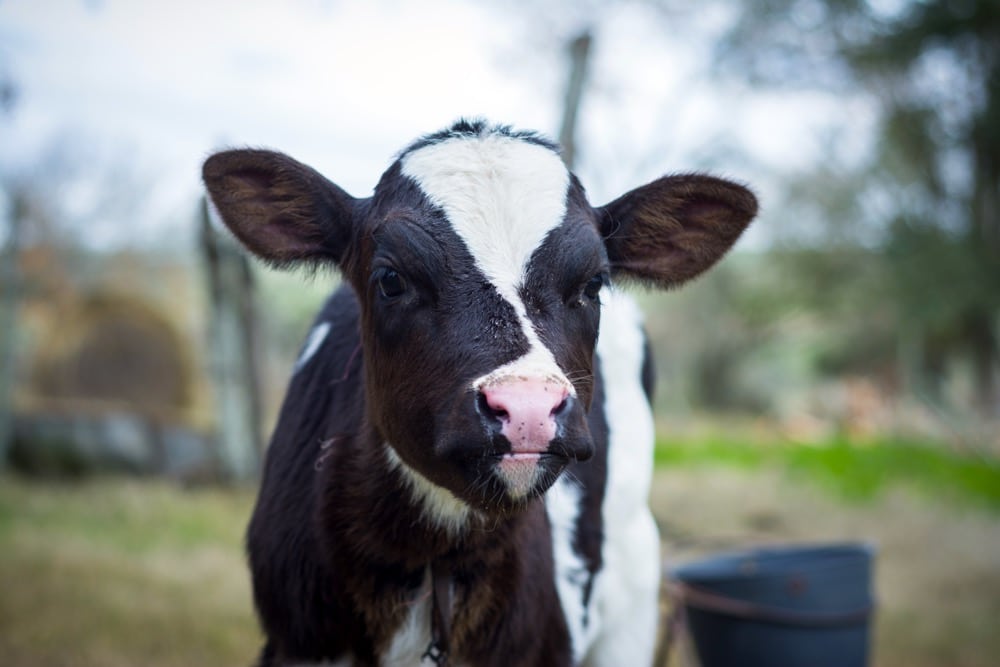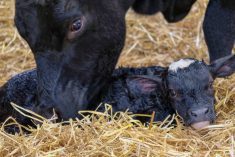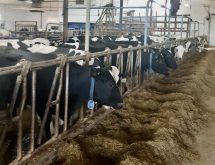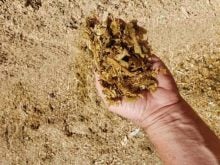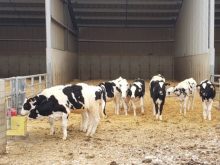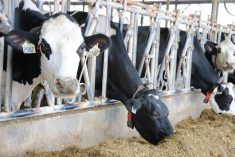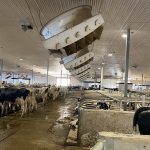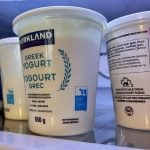It might be a scouring sick dairy calf or an otherwise healthy one suffering from stress, but death can be minutes away if either calf loses more than 10 per cent of its bodyweight in fluids (water and electrolytes). Fortunately, we can save many of these dairy calves by recognizing the symptoms of dehydration and then acting quickly by replenishing vital body fluids with a well-fortified electrolyte solution. In addition, we might even prevent more cases of dehydration in calves by feeding a specialized electrolyte supplement during periods of stress.
Read Also

Fall clean-up and bringing animals home at the Eppich ranch
Winter is approaching which meant emoving old fence rows and bringing livestock home before the cold and the snow at the Eppich family ranch.
Loss of such aqueous (water) and salt vitality in baby dairy calves is commonly caused by two reasons: (1) diarrhea/scours or (2) dehydration caused by environmental factors, which is often synonymous with heat stress. To complicate matters, a scouring calf might also be suffering from heat stress as well as heat stress may lead to severe scours.
Elecrolyte products
The best electrolyte products for calf scour or heat-stressed treatments should contain three major electrolytes: sodium, chloride and potassium. They should be concentrated at high enough levels so when they are mixed with water, the prepared liquid is ready to drench sick calves. Penn State University recommends that a proper scour treatment should contain about 70 to 145 mmol/l of sodium, 20-30 mmol/l of potassium, and 50-100 mmol/l of chloride.
Along with these essential minerals, many saleable formulas contain glycine and glucose (this ingredient sometimes noted as dextrose on the label, up to 500 mmol/l) in order to promote electrolyte uptake in the scouring calf’s small intestine. A few electrolyte formulas might also contain an alkalinizing agent to prevent a potential acidotic condition that usually accompanies calf scours. Other products contain a gel agent to help slow the rapid flow of diarrhea coming out of the calves.
Aside from these balanced electrolyte formulas, there are a series of similar products known as “electrolyte supplements,” which are typically less concentrated with electrolytes. Since, they do not have “treatment” amounts of electrolytes, they are not intended to be used to rehydrate scouring or severely heat-stressed calves.
Rather, they can help calves get through stress periods by maintaining fluid balance, stimulating appetite, maintaining immune function and even preventing vitamin/mineral deficiencies. That’s because they are equally well designed with modest amounts of Vitamin A, D, E and B-vitamin complex and balanced levels of sodium, chloride, potassium and magnesium. When mixed at the rate of a few tablespoons per 20 litres of water, they might be distributed into the “extra water” pails or mixed up as a stock solution and then metered by medicator into the main water source for dairy calves.
Effective use of electrolyte concentrates and similar supplements is a matter of feeding them to dairy calves at the right time and situation.


